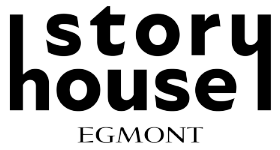The Egmont Group has commercial activities in the UK and an annual global net turnover of more than GBP 36m and is thus obliged to prepare a statement for the UK Modern Slavery Act.
UK Modern Slavery Act Statement
This statement outlines the measures taken by Egmont to prevent forms of modern slavery and human trafficking for the 2019 fiscal year. In doing so, Egmont is fulfilling its duties pursuant to Section 54 (1) of the UK Modern Slavery Act 2015.
Egmont
Egmont is a leading media group in the Nordics, founded in 1878. Egmont is a commercial foundation with a dual purpose: to develop tomorrow’s media and to support vulnerable children and young people to an education and a better life. The strategy Grow with the Modern Consumer entails investments in digital growth and new tech based businesses while applying technology to strong storytelling. The annual profit is invested in business development and in the charitable activities to support vulnerable children and young people as well as donations for film talents through Nordisk Film Fonden.
Any and all forms of modern slavery, forced and child labour, exploitation and discrimination are prohibited at Egmont. Egmont is committed to the principles of the United Nations Global Compact (UNGC), the United Nations Guiding Principles on Business and Human Rights, and the Core Labour Standards of the International Labour Organization (ILO). Ensuring fair working conditions is an integral part of Egmont’s corporate culture and Egmont operates a number of policies to ensure that its companies are conducting business in a transparent and ethical manner and in compliance with relevant legislation, including Egmont’s Business Ethics Policy, the Corporate Recruitment Policy and the Whistleblowing Policy. All relevant Egmont employees are well-informed about the rules
of conduct and their rights through group-wide communication and training measures concerning Egmont’s Business Ethics Policy. In 2019, a new online training in business ethics was implemented across the Egmont divisions. Furthermore, Egmont has established comprehensive communication and speak-up channels that allow for the reporting of Compliance violations, e.g. human rights violations.
In addition, Egmont regularly conducts an employee survey addressing, inter alia, working conditions and employee satisfaction. If survey results indicate a need for improvement, appropriate measures are implemented. The most recent employee survey took place in November 2019.
Supply Chain Compliance
Business partners and suppliers (and their subcontractors) are required to comply with Egmont’s Code of Conduct. The Egmont Code of Conduct together with the Egmont Social Compliance Programme operationalizes Egmont’s efforts against modern slavery in third party supply chains. The Egmont Social Programme requires social audits at
first-tier/core suppliers based on a risk assessment of the country and sector they are in. Egmont operates with three country risk groups:
- Country Group 1: Suppliers are audited every 12 months
- Country Group 2: Suppliers are audited every 12-24 months
- Country Group 3: Suppliers are audited ad hoc
If Egmont experiences or is made aware of an instance of modern slavery, this will be dealt with by the Corporate Legal and Compliance team.
The statement was approved by Egmont’s board of directors and will be reviewed annually.
Egmont International Holding A/S









